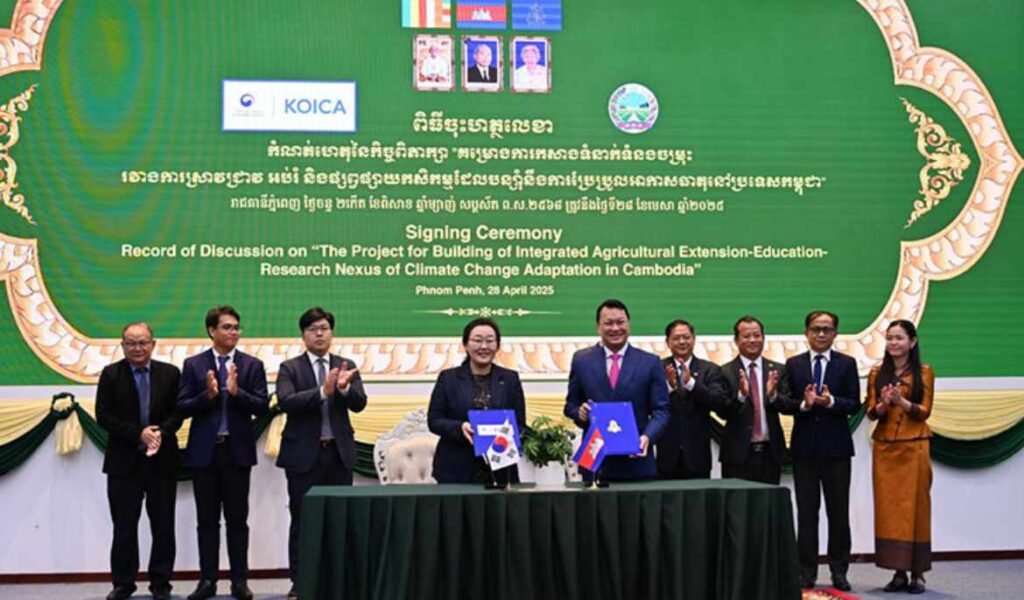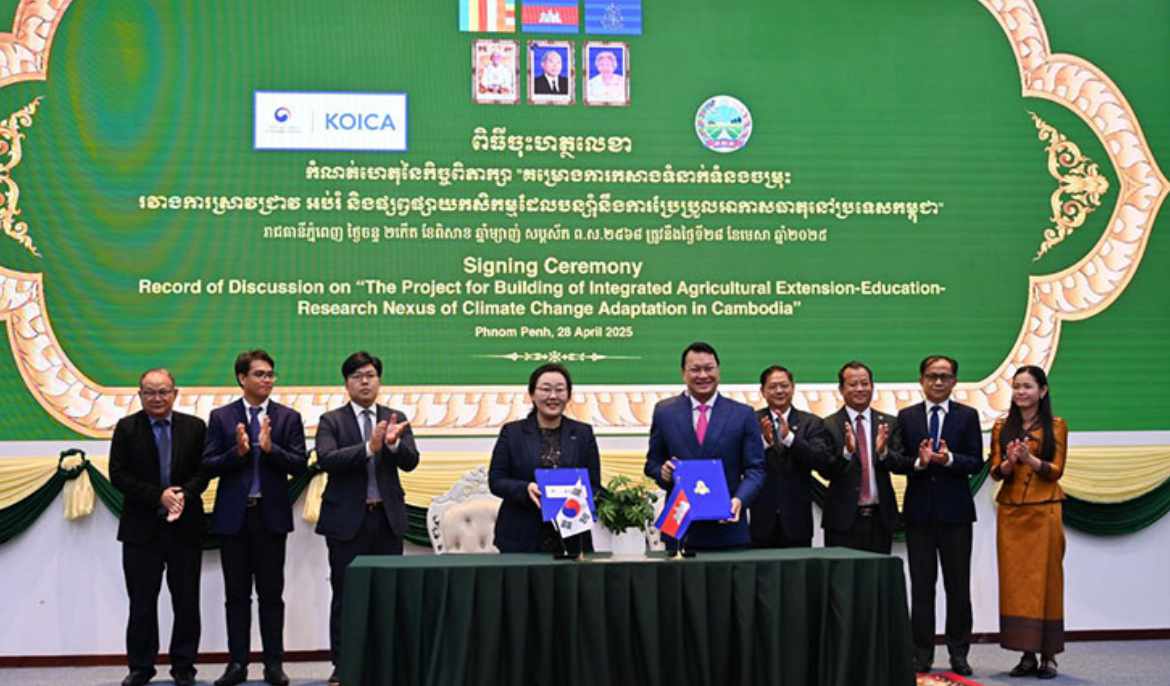The Ministry of Agriculture, Forestry and Fisheries (MAFF) and the Korea International Cooperation Agency (KOICA) Monday signed a $12 million grant agreement to boost climate-resilient farming by empowering Commune Agriculture Officers (CAOs).
The signing ceremony was presided over by Dith Tina, Minister of Agriculture, Forestry and Fisheries (MAFF) and Choi Moonjung, Country Director of KOICA Cambodia office.
According to a KOICA press statement, the ‘Project of Building of Integrated Agricultural Extension-Education-Research Nexus of Climate Change Adaptation in Cambodia’ will be a vital extension-education-research nexus at the Royal University of Agriculture.
“With a budget of $12 million of grant aid, this project will be implemented from 2025 to 2030 to provide CAOs with the tools and training they need to help farmers adapt to climate change and improve their livelihoods,” read the statement.
These dedicated individuals play a crucial role in bringing essential agricultural knowledge and practices to farmers across the country. This investment in CAOs is an investment in the future of Cambodian agriculture.
In a related effort, on Friday, Yang Saing Koma, Secretary of State of the Ministry of Agriculture, provided guidance to newly appointed commune-sangkat agricultural officers in the Upper Mekong region.
This includes 44 officers in Kratie, 30 in Stung Treng, 50 in Ratanakiri, and 21 in Mondulkiri province.
During their orientation training, Saing Koma introduced the first phase of the 7th Royal Government’s Pentagonal Strategy and outlined the responsibilities of commune agricultural officers.
He encouraged both new and existing officers to serve with integrity, collaborate with stakeholders, and work closely with farmers to achieve higher agricultural returns.
“These efforts align with Cambodia’s development vision to reach upper-middle-income status by 2030 and high-income status by 2050,” Saing Koma emphasised.
Commune agricultural officers play a crucial role in boosting production, enhancing the quality of agricultural products, and facilitating marketing for farmers. By 2025, 1,000 commune agricultural officers will be deployed across all 25 provinces and capitals of Cambodia.
Their tasks are guided by five key responsibilities, including identifying the key challenges faced by farmers, reporting farmers’ issues, supporting the timely implementation of solutions for farmers, facilitating coordination aimed at connecting and strengthening agricultural communities, and collecting and maintaining agricultural statistics at the commune level.
It may be recalled that the Ministry of Agriculture, in partnership with the International Fund for Agricultural Development (IFAD), on April 11 has officially launched the Climate Resilience Enhancement for Building Adaptive Capacity in Agri-Value Chains in Cambodia (CREA) project – a bold new initiative to strengthen climate resilience across Cambodia’s rural farming communities.
With rising climate threats such as droughts, pest outbreaks, and erratic rainfall patterns affecting agriculture, CREA supports smallholder farmers and rural enterprises by scaling up climate-resilient technologies (CRTs) and enabling access to innovative finance mechanisms.
The six-year project is financed through a $4.86 million grant from the Global Environment Facility (GEF) and benefits from an additional $11.32 million in co-financing, including $9.36 million in-kind support from the Royal Government of Cambodia and $1.96 million from private sector partners.



